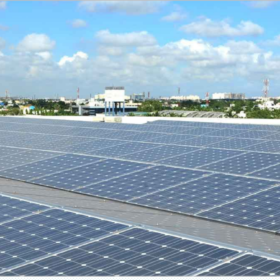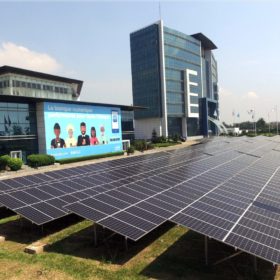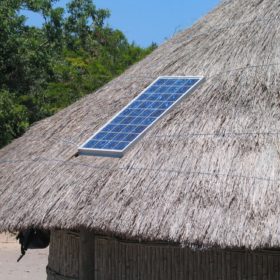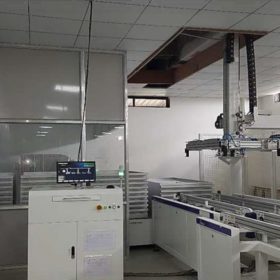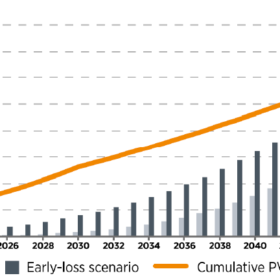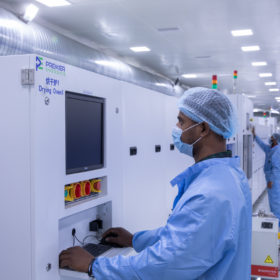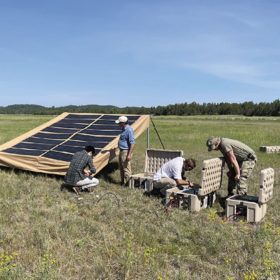L&T closes $107 million sustainability-linked loan
The Indian multinational EPC provider has successfully closed a three-year $107 million sustainability-linked loan with Sumitomo Mitsui Banking Corp.
COP27 was a crucial step forward for hydrogen – here’s why
Three import deals signed by the EU at Sharm El Sheikh during this month’s COP27 summit show the European Union is serious about harnessing green hydrogen for its heavy industry, and about distributing the fruits of the energy transition on an equitable basis.
Tipping point for African C&I solar
With installers who cater to African businesses making the headlines this year, Jasper Graf von Hardenberg – whose C&I solar business was recently bought by Shell – explains here how the story of the continent’s commercial and industrial (C&I) solar segment was far from an overnight success.
Disrupting the ‘Li-ion battery waste to value creation’ market
Bengaluru-based Metastable Materials has developed a 100% chemical-free process for extracting metals out of scrap Li-ion batteries. It has set up an ‘Urban Mining Unit’ on the outskirts of Bengaluru, which is capable of processing up to 1,500 tonnes of dead batteries per annum. This unit will start production early next year. Shubham Vishvakarma, founder and chief of process engineering at Metastable Materials, speaks to pv magazine about the role of urban mining in meeting India’s electric mobility ambitions and the advantages of the process developed by them.
EKI Energy, First Source launch climate edtech, finance venture
EKI Energy and First Source Energy have launched a joint venture entity that will drive focused educational initiatives while also mobilising funds from global markets for sustainable climate projects across the globe.
Navitas Solar achieves carbon neutrality for 2021
The Gujarat-based solar manufacturer has pledged to become fully carbon neutral by 2023 and achieve net-zero status by 2030.
IEA PVSP predicts high-cost, low-revenue scenario for solar recycling
A recent report by the International Energy Agency Photovoltaic Power Systems Programme (IEA PVSP) reviews the current regulatory and industrial landscape for end-of-life PV management in Germany, France, Italy, Spain, Japan, South Korea, China, Australia, and the United States.
Premier Energies earns LEED Gold certification for its solar factory
The Indian manufacturer’s facility at Electronic City in Telangana has become the first LEED Gold-rated solar cell and module manufacturing facility in India. It received the stringent green building rating from the US Green Building Council.
The long read: Solar support in hazardous locations
In some of the world’s most hazardous locations, a resilient and autonomous common denominator is often found – solar energy. From offshore oil rigs to remote mine sites and the frontlines of conflict zones, solar power functions where others fail, and it does so without the need of refuelling or regular maintenance. But what makes solar such a ‘no-brainer’ that even the oil and gas industry must turn to it? And what other hazardous locations can be electrified with solar? Blake Matich reports.
Microsoft to purchase power from a 100 MW Amplus Solar project in India
On the road to becoming carbon negative, Microsoft increases the amount of zero-carbon electricity it’s procuring through long-term contracts.
